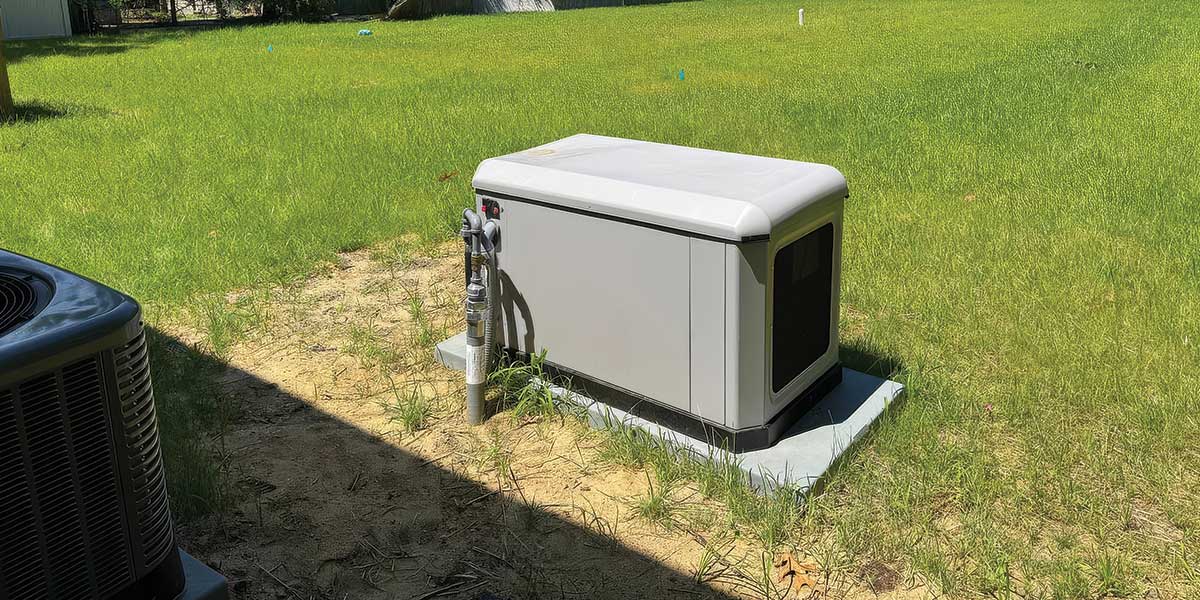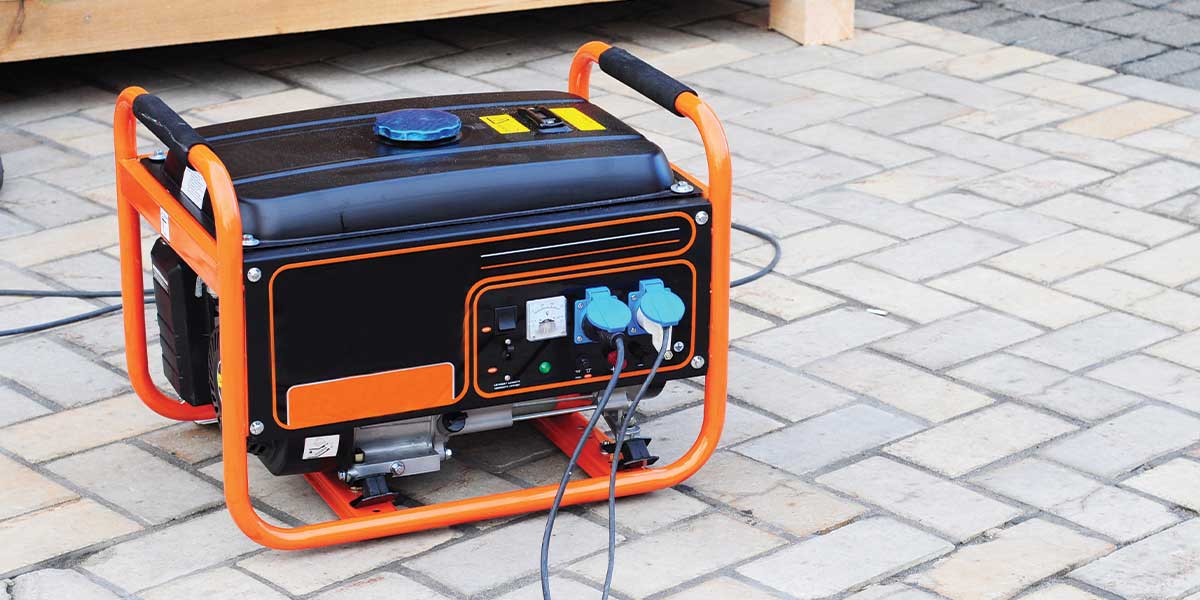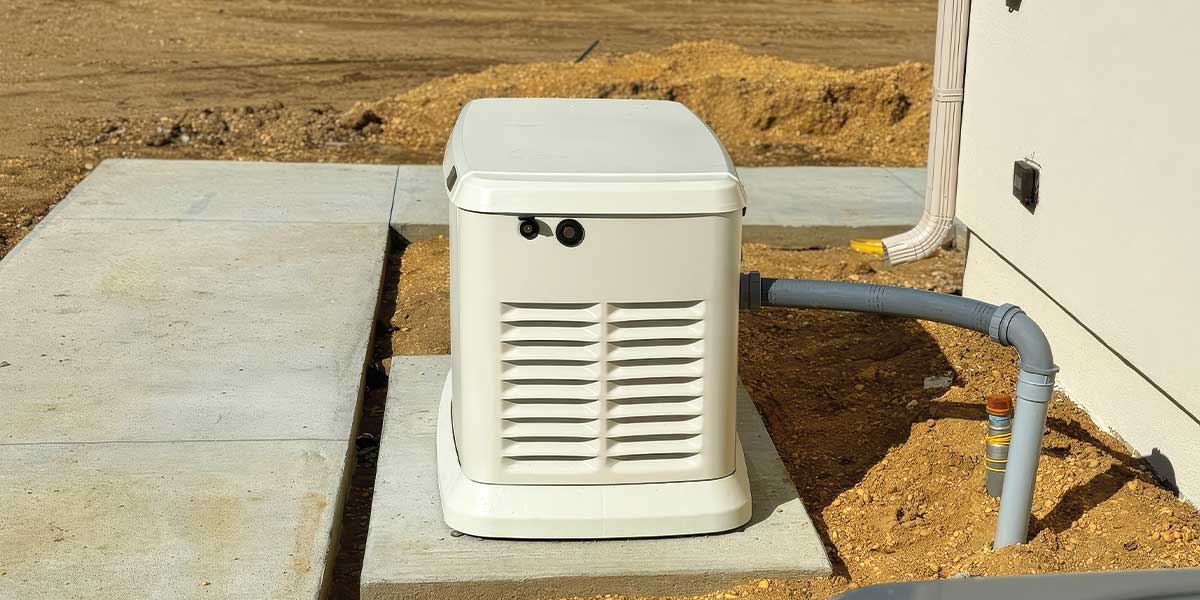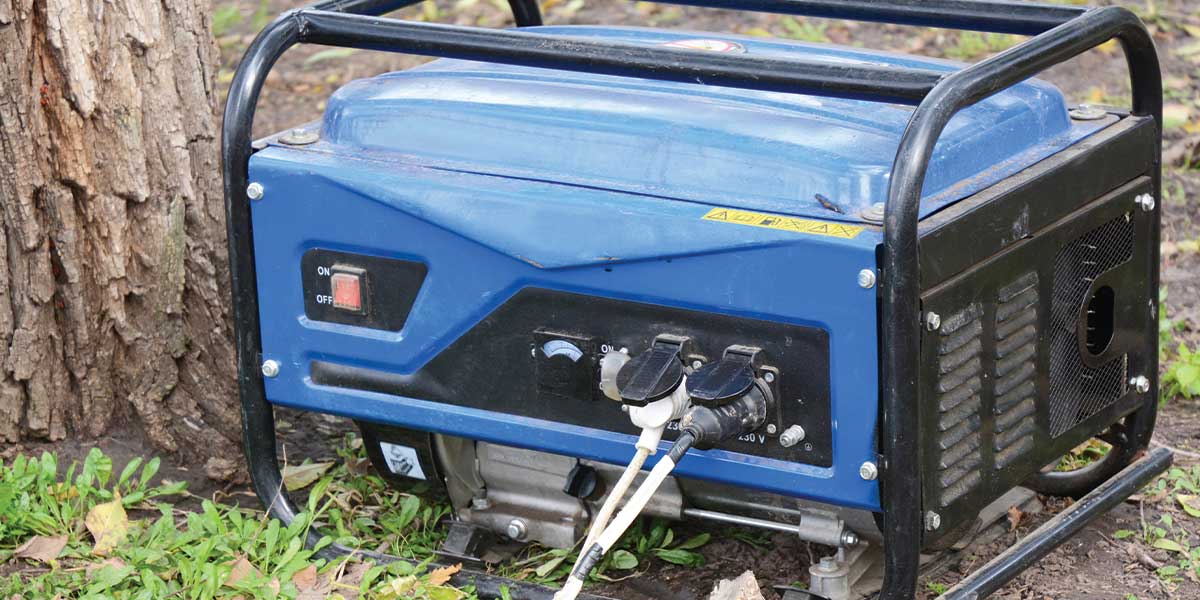Let’s set the scene: You’re relaxing in your cozy North Vancouver home on a blustery winter night. Outside, the wind is howling, the rain is relentless, and your hot cocoa is just beginning to cool. Then, with the flicker of a lightbulb and the sudden silence of your refrigerator, bam—a power outage.
It’s easy to take electricity for granted—until it’s gone. That moment of pitch-black uncertainty is when reality hits: our homes run on power, and without it, we’re back to living like pioneers (minus the charming log cabins and bonnet hats). Whether it’s keeping your food from spoiling, staying warm, or ensuring your Zoom calls don’t drop, power is essential to modern life.
This is where home backup generators come in. These lifesaving devices are becoming more common across British Columbia, especially in areas like Burnaby, Surrey, and Coquitlam, where power outages from storms, grid overloads, and even overzealous raccoons are not unheard of.
But before you sprint to your local hardware store or start Googling “best generator deals,” let’s pump the brakes. Choosing the right generator involves more than comparing price tags. You’ll want to understand the different types—portable generators, standby generators, and residential generators—their benefits, how much power you need, and who should install them (spoiler alert: it’s not your cousin Dan with the YouTube degree in electrical wiring).
In this article, we’ll walk you through everything you need to know before investing in a generator. We’ll break down types, sizes, fuel options, and maintenance tips—all wrapped in a bow of real-world examples and professional insight from our team here at Expert Electric.
Because when the lights go out, we want you to be the one house on the block still glowing.

What Is a Home Backup Generator, Really?
So, what exactly is a home backup generator? In simple terms, it’s a device designed to provide electricity to your home during a power outage. But not all generators are created equal, and understanding your options can mean the difference between just getting by and fully powering your home life as usual.
A home backup generator acts as your home’s Plan B power supply. Installed as part of your electrical system, it’s there to kick in automatically—or with a quick manual start—when your regular power source fails. Think of it like your home’s emergency parachute. You hope you never need it, but when the time comes, you’ll be grateful it’s there.
Now, let’s explore your generator options:
Portable Generators
Portable generators are smaller, gas-powered units you can move around and operate manually. They’re often used for camping, RVing, or short-term emergency power.
Pros:
- Affordable, usually starting around $500
- Flexible use cases—take it camping or use it at the job site
- Easy to store and transport
Cons:
- Limited power (typically enough to run a fridge and a few lights)
- Requires manual startup
- Fuel storage is necessary
- Not designed for whole-home use
These are handy in places like cabins up in Squamish or small homes in New Westminster that only need temporary, limited power during an outage.
Standby Generators
Standby generators, on the other hand, are fixed installations wired directly into your home’s electrical panel. They automatically kick on when the power goes out and can run for days, fueled by natural gas or propane.
Pros:
- Instantaneous power recovery
- Can run your whole home, including HVAC systems
- Low-maintenance with automatic self-tests
Cons:
- Higher cost (starting at $3,000–$10,000+ including install)
- Requires professional installation
In areas like Langley or White Rock where families rely on consistent power for home businesses or medical devices, a standby generator is the ultimate peace-of-mind tool.
Understanding the difference helps you make a better-informed choice and invest wisely.

Why Do You Need One? Let’s Talk Real-World Chaos
Still debating whether a generator is worth it? Let’s talk about the very real scenarios that many Lower Mainland residents face every year.
From downed trees in Port Moody knocking out entire neighborhoods to ice storms in Chilliwack and surprise blackouts during heatwaves in Richmond, power outages are more common—and disruptive—than you might think. BC Hydro offers a helpful guide on preparing for outages, which is worth reviewing even if you already own a generator.
And when the grid goes down, the impact is more than just an inconvenience:
Food Spoilage
One of the first casualties of an outage? Your fridge. In just 4 hours without power, perishables can become unsafe to eat. A backup generator keeps your appliances running and your food fresh.
Work Interruption
With more people working from home, a blackout isn’t just annoying—it can cost money. Imagine being mid-presentation with a client and poof—offline. A residential generator ensures your modem, laptop, and lights stay powered.
Medical Necessity
For homes with medical equipment like CPAP machines, oxygen tanks, or refrigerated medications, a generator isn’t a luxury—it’s a lifeline. To understand the broader impact of outages and how to stay safe, consult these emergency preparedness tips from the Canadian Red Cross.
Extreme Weather Relief
During freezing winters or blistering summer heat, heating and cooling are vital. Without them, your home can quickly become unsafe, especially for children or seniors. A generator keeps your HVAC system operational.
Think of a home backup generator as insurance. You might not need it every day, but when disaster strikes, you’ll wish you had it running.
How to Choose the Right Generator for Your Home
Choosing the right generator isn’t about grabbing the most expensive one on the shelf—it’s about matching your needs with the right features.
Step 1: Know Your Power Requirements
Start by listing the essentials you want to power during an outage:
- Fridge and freezer
- Furnace or electric heaters
- Sump pump (if applicable)
- Lights in key areas
- Wi-Fi and work equipment
- Medical devices
Add up the wattage and look at your peak needs. A portable generator can handle a few basics (around 3,000–8,000 watts), while a standby generator can cover entire homes (9,000–20,000+ watts).
Not sure how to calculate it? No worries—Expert Electric offers power needs assessments across the Lower Mainland.
Step 2: Choose the Right Fuel Type
Your generator will run on one of the following:
- Gasoline – Easily accessible but unstable for long storage
- Propane – Cleaner and stores well
- Natural Gas – Continuous fuel from your city’s supply
If you live in an area like Burnaby or Delta with gas infrastructure, a natural gas-fed standby generator is your best bet. Natural Resources Canada provides insight into fuel efficiency and environmentally friendly options to help you make a smart, sustainable choice.
Step 3: Decide Between Manual vs Automatic Transfer
Portable units need a manual transfer switch—you’ll have to go outside and flip it during a storm (no thanks).
Automatic transfer switches used with standby units turn on the generator the second your power goes out—no human intervention required.
This is where convenience meets technology. Trust us, in the middle of a blizzard, you’ll be glad it’s automatic.
Installation: Don’t DIY This One, Folks
Installing a home backup generator is not a weekend DIY project. Between the wiring, fuel connections, and local codes, it’s a job for seasoned pros—like the team here at Expert Electric.
The Risks of DIY
Improper installation can lead to:
- Fire hazards from fuel mismanagement
- Dangerous back-feeding into the grid
- Warranty voids
- Failed inspections or bylaw violations
The Perks of Hiring the Pros
When you call us, we:
- Handle city permits and inspections
- Recommend the right size generator for your needs
- Ensure safe, code-compliant installation
- Conduct full system testing and walk you through operation
In cities like New Westminster and Abbotsford, our techs are already familiar with municipal regulations, streamlining your install process.
Plus, you’ll get that warm, fuzzy feeling knowing everything’s done right. Like wrapping yourself in a metaphorical electric blanket.
The Perks of Hiring the Pros
When you call us, we:
- Handle city permits and inspections
- Recommend the right size generator for your needs
- Ensure safe, code-compliant installation
- Conduct full system testing and walk you through operation
In cities like New Westminster and Abbotsford, our techs are already familiar with municipal regulations, streamlining your install process.
Plus, you’ll get that warm, fuzzy feeling knowing everything’s done right. Like wrapping yourself in a metaphorical electric blanket.

Common Generator Myths—Debunked!
Let’s bust a few myths we hear all the time:
“A portable generator is just as good.”
Not quite. A portable generator might keep your coffee machine running, but a standby generator can run your entire home for days. They’re different tools for different jobs—like comparing a pocketknife to a full tool chest.
“Generators are way too expensive.”
Yes, upfront costs can range from $2,000 to over $10,000 with installation. But consider this: how much does a fridge full of spoiled groceries cost? What about missed work? Or hotel stays during multi-day outages? The math adds up fast.
And with Expert Electric’s financing plans, backup power has never been more accessible.
“I’ll never need it.”
Power outages aren’t predictable. Ask our customer in Coquitlam who went three years outage-free—until a construction mishap left their block in darkness for two full days. Guess who had lights? Yep. Our client with the standby generator.
Generator Maintenance: Show It Some Love
Generators are like cars—ignore them and they’ll leave you stranded.
Monthly Checklist
- Run it for 15-20 minutes
- Check for unusual noises or leaks
Seasonal Checks
- Inspect oil levels
- Check battery charge
- Ensure fuel supply is clean and sufficient
Annual Tune-Up
Let us handle the heavy lifting with our Generator Maintenance Plan. It includes testing, fuel system cleaning, and electrical inspections so you’re never caught off guard.
Think of it as a spa day for your generator. Even superheroes need a tune-up.
A True Story From One of Our Customers
Meet the Robinsons from Chilliwack. Last December, an ice storm took out power for nearly 40 hours. Their neighbour had a portable generator and was rationing power for lights and charging phones.
The Robinsons, on the other hand, had a standby generator we installed six months earlier. They were watching Netflix, heating their home, and even sharing coffee with neighbours.
Their generator didn’t just save the day—it built community. And guess who called us the next week? That same neighbour.
FAQs About Home Backup Generators
Q: How much does a home backup generator cost?
A: Portable generators start at around $500, while standby generators can range from $3,000 to over $10,000 with professional installation. Your total cost depends on the type, size, fuel source, and installation needs.
Q: What’s the best home backup generator for power outages?
A: Standby generators are ideal for whole-home coverage and automatic operation during an outage. Portable generators are better for short-term, limited use. The best choice depends on your home’s size, power needs, and budget.
Q: How do I choose the right home backup generator?
A: Start by listing the essential appliances you need during an outage (e.g., fridge, heat, internet). Calculate the total wattage required, decide on a fuel type (gasoline, propane, or natural gas), and choose between a manual or automatic transfer system.
Q: Can I install a generator myself?
A: It’s strongly recommended to hire a licensed electrician. DIY installation can lead to fire hazards, back-feeding risks, and bylaw violations. Professionals ensure safe, legal, and warranty-compliant installations.
Q:Do I need a permit to install a generator in British Columbia?
A: Yes. Most municipalities in BC require permits for generator installations. Expert Electric handles permits and inspections to ensure your system meets local electrical codes and safety standards.
Final Checklist: Your Pre-Purchase Power Plan
Before you buy, run through this list:
- Do you want full-home coverage or just essentials?
- Will a portable generator suffice, or do you need a standby system?
- What’s your ideal fuel source—gasoline, propane, or natural gas?
- Do you want automatic convenience or manual control?
- Are you hiring a pro (we hope so)?
Ready to make the leap? We’re here to guide you every step of the way.
Ready to Power Up? Call Expert Electric Today
At Expert Electric, we’ve been powering homes across the Lower Mainland for decades. From consultation to installation and maintenance, we make your generator journey smooth, safe, and stress-free.
Serving Vancouver, Burnaby, Surrey, Langley, Abbotsford, and beyond!
- Call: 604-681-8338
- Email: info@expertelectric.ca
Don’t wait for the next outage to take control of your power. Let’s get you glowing—rain or shine.


